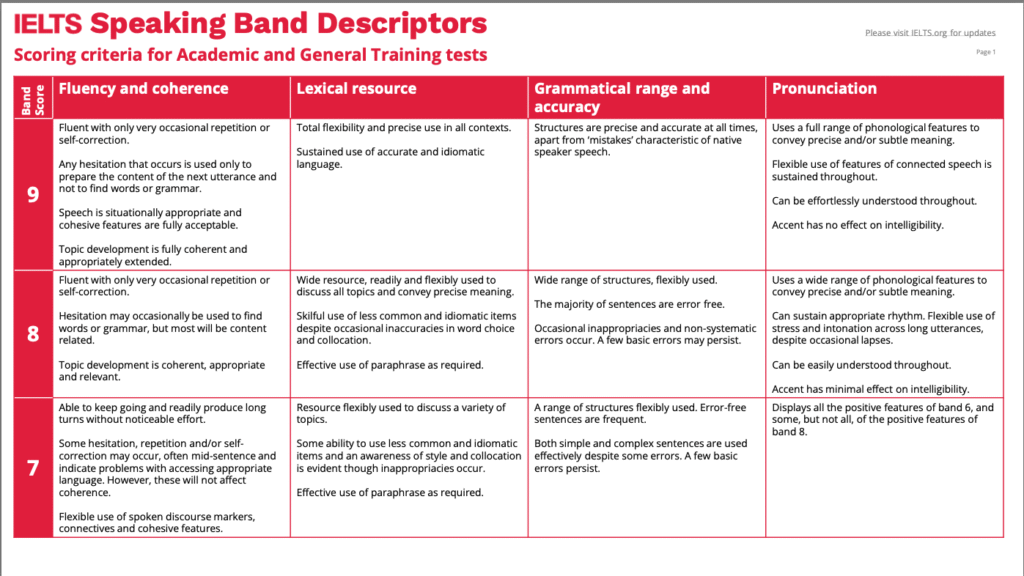In IELTS Speaking, ‘accent’ is NOT a criterion to assess your answers. So, let’s clear up a big myth in IELTS Speaking: your accent will NOT lower your score unless your accent makes your speech unclear, difficult to understand.
Yes, you heard that right! You don’t need to speak like a Brit or an American to get a high band score. However… there is something that really matters — and that’s your pronunciation.
You know that you have an accent but do you know which words you are pronouncing incorrectly? It’s hard, isn’t! Because it is!
In this post, I will share with you a method to self-detect pronunciation mistakes.
Accent vs Pronunciation: What’s the Difference?
It’s super common for IELTS students to confuse accent with pronunciation, but they’re not the same.
Accent is how your English sounds based on your first language. Everyone has one and that’s totally fine! For example, Indians tend to pronounce the |r| sound stronger than many other people. This is accent.
Pronunciation is how clearly and correctly you produce English sounds. This is what examiners are listening for in the IELTS Speaking test. For example, if you say |PRE-fuh(r)| instead of |pri-FUH(R)| when pronouncing ‘prefer’, this is a pronunciation mistake.
✅ You can have an Indian, Vietnamese, or Arabic accent and still get a Band 8 in Speaking.
❌ But if you mispronounce words (like saying bark instead of park), that will affect your score.
Why Pronunciation Matters in IELTS Speaking
Pronunciation is one of the four official scoring criteria in the IELTS Speaking test. That means it carries as much weight as grammar, vocabulary, and fluency.
So, if your pronunciation makes it hard for the examiner to understand you, your score will go down, even if everything else is great.

But here’s the tricky part: most of us can’t easily hear our own pronunciation mistakes 😬. That’s why getting feedback from someone experienced can make a huge difference.
One Smart Way to Catch Your Mistakes 🔍
While it’s hard to detect your own pronunciation issues, there’s something smart you can do:
👉 Learn the common pronunciation mistakes made by people from your region or language background.
Here are a few examples:
If you’re from India, Pakistan, Bangladesh, or Nepal, you might say PREF-uh instead of pri-FUH(R) for ‘prefer’.
If your first language is Arabic, you might pronounce park as bark because of the /p/ and /b/ confusion.
Being aware of these patterns helps you be conscious about the potential pronunication mistakes and fix them if you are making them as well.
I Do This Too, And So Should You 🙋♀️
Even as a train, I still work on my pronunciation. This isn’t about being perfect, it’s about being understood.
So I’m not here to tell you every single sound you need to fix. I’m here to remind you that:
You might be making pronunciation mistakes
You can improve them with the right guidance
And no, your accent is not the enemy 😉
Ready to Improve Your Pronunciation?
🎁 Get 50% off your pronunciation evaluations with me
🎓 Or join my Everything IELTS preparation plans for unlimited support
📝 Start with a free IELTS practice test — it’s the best way to begin
Have fun learning.
Book your IELTS exam 👉 The Official Website of IELTS











Responses